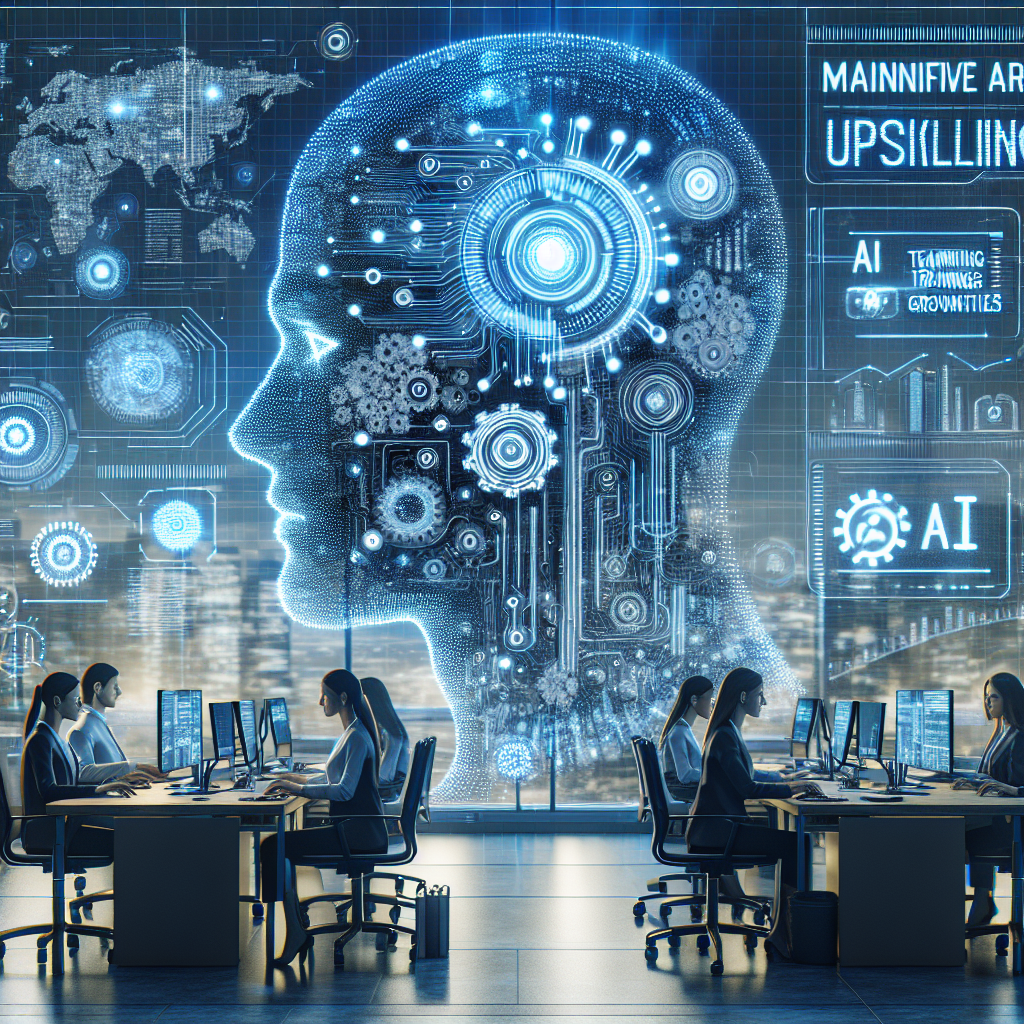In an ever-evolving world where innovation is king, the importance of upskilling and adapting cannot be overstated. The advent of Artificial Intelligence (AI) has brought about a paradigm shift in the job market, transforming the way we work and live. By 2025, AI is poised to become an even more integral part of our lives. Therefore, upskilling with AI is a strategic move to future-proof your career.
Understanding the AI Landscape
Before we delve into the strategies for upskilling, it’s essential to understand the AI landscape. AI, at its core, is about replicating human intelligence in machines. It covers a wide array of technologies including Machine Learning, Natural Language Processing, Robotics, and more. With its wide applications, AI has permeated sectors from healthcare to finance, retail, and beyond, creating a demand for AI-skilled professionals.
Why Upskill with AI?
Why should you consider upskilling with AI? Here are a few compelling reasons:
- Increased Job Opportunities: As organizations integrate AI into their operations, the demand for professionals skilled in AI is skyrocketing.
- Higher Salary: With the high demand and relatively low supply of AI professionals, the salary prospects are lucrative.
- Futuristic Skill: AI is here to stay. Upskilling in AI is a surefire way to future-proof your career.
Strategies for Upskilling Your Career with AI
Now that we understand the AI landscape and its importance, let’s explore some proven strategies for upskilling your career with AI.
1. Identify Your Learning Goals
Identifying your learning goals is the first step towards upskilling. Do you want to delve into AI research, or are you more interested in its application? Do you want to use AI in your current industry or switch to a new one? Answering these questions can help you identify your learning goals and chart a clear path forward.
2. Choose the Right Learning Resources
There are a plethora of learning resources available, from online courses to bootcamps and university programs. Choose a program that aligns with your learning goals, offers practical experience, and has a good reputation in the industry.
3. Hands-On Experience
Theoretical knowledge is important, but practical experience is paramount. Engage in projects that allow you to apply what you’ve learned. This not only solidifies your understanding but also makes you more marketable to employers.
4. Networking
Networking can open doors to opportunities that you may not have known existed. Attend AI conferences, join online communities, and connect with AI professionals in your industry. This can give you insights into industry trends and expose you to different perspectives.
Pros and Cons of Upskilling with AI
Pros
- High Demand: As mentioned earlier, the demand for AI skills is high, making it a valuable skill to have.
- Lucrative Salary: Thanks to the high demand, AI professionals command a high salary.
- Future-Proof: With AI poised to become even more prevalent, upskilling with AI is a safe bet for future job security.
Cons
- Time-Intensive: Mastering AI is not an overnight task. It requires a significant time investment, which may not be feasible for everyone.
- Constantly Evolving: The AI field is constantly evolving, requiring continual learning and adaptation.
Conclusion
Upskilling with AI is a strategic move that can open up numerous opportunities. By identifying your learning goals, choosing the right resources, gaining hands-on experience, and networking, you can navigate the AI landscape and future-proof your career.
FAQ
1. What is the best way to start learning AI?
Start by understanding the basics of AI and its different components. Online courses are a great place to start.
2. Is a background in programming necessary for upskilling in AI?
While a programming background can be helpful, it’s not necessary. Many AI tools and platforms are designed to be user-friendly, allowing even non-programmers to use them.
3. Can AI replace human jobs?
AI can automate repetitive tasks, but it cannot replace the creativity, critical thinking, and emotional intelligence of humans. Therefore, while AI can change the nature of jobs, it’s less likely to replace human jobs altogether.
